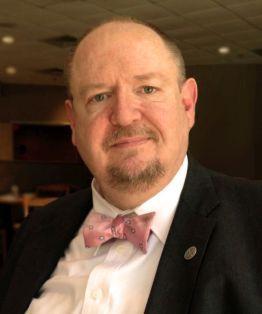 Hope and Life Press is proud to welcome on board the award-winning capital cases lawyer and writer Timothy Capps, Esq., of Illinois, with his Catholic psychological thriller Judging Angels, which shall be released by HLP in paperback and ebook editions later this year.
Hope and Life Press is proud to welcome on board the award-winning capital cases lawyer and writer Timothy Capps, Esq., of Illinois, with his Catholic psychological thriller Judging Angels, which shall be released by HLP in paperback and ebook editions later this year.
Timothy Capps is a lawyer, husband, and father who converted to the Catholic faith in high school, despite having been given a copy of the Dutch Catechism. Capps joined the United States (US) Army and trained as an Arabic linguist in Syrian dialect and Egyptian at the Defense Language Institute, California. He received crypto training at Goodfellow Air Force Base, Texas, and held top secret clearance. Capps served with the 101st Airborne (Air Assault) Division, 265th Army Security Agency company, an XVIII Airborne Corps asset, doing voice intercept and radio direction finding. Upon discharge from the Army, he became a news reporter and producer for small market radio stations, and served in law enforcement. He graduated from Southern Illinois University School of Law in 1989 and became a Navy JAG lawyer. Capps received the New York City Bar Association's Committee on Military Justice Award for Trial Advocacy.
In 1990, Capps was serving as prosecutor at the Naval Training Center at Great Lakes when Kuwait was invaded. He volunteered to be stationed closer to hostilities, knowing that the influx of Navy and Marine personnel would mean a greater need for lawyers. In the official evaluation, Capps had been called "a young lion in the courtroom" and was awarded the Navy Achievement Medal. He transferred to the Naval Air Station at Sigonella, Sicily, during which time he had, among others, two missions to the Gulf at the end of Operation Desert Storm. Capps was awarded the Southwest Asia Service Medal for his time in theater.
After the Navy, Capps returned home and became a public defender, where he handled the first of many murder cases. He also served as prosecutor in the office of the Illinois Attorney General (AG), where he tried his first death penalty case and presented closing argument. Capps started his own criminal defense practice based on the cornerstones of character, competence, communication and compassion, becoming well-known for successfully handling death penalty cases with innovation and tenacity. He was invited by the Illinois Supreme Court to serve on the committee that approved lawyers to serve as defense counsel in capital cases. Some of Capps's high profile cases were covered in Life Magazine, the Oprah Winfrey Show ( People v. Bruny, 1999), Nancy Grace ( People v. Coleman, 2009), and CNN (bi-state psychopathic spree killer Nicholas Sheley , 2008).
Following his most difficult capital case ( People v. Pontious, 2001) and the only one in which expert testimony on false confession was used successfully in Illinois, Capps became a recognized expert on the phenomenon of false confessions and presented at mandated continuing legal education seminars for lawyers throughout the state. He was the first lawyer to use an automated survey to gather evidence for change of venue, instrumental in eliminating the death penalty in . Hired by Illinois to assist and train death penalty defense teams, Capps became involved in the Coleman and Sheley cases. He helped plan training conferences including ethics, false confessions, and new developments in criminal law. He also founded and edited the Illinois Lifeline Capital Trial Newsletter distributed to state lawyers. Capps was given the Richard E. Cunningham Award for "distinguished service as a death penalty defense advocate who, in the course of performing high quality representation, has demonstrated extraordinary and tenacious commitment to the capital client's cause and whose continuing dedication and tireless advocacy is an inspiration to all defenders in the continuing struggle for fairness and justice in Illinois capital cases."
The state had long been worried about its capital punishment system after half its death row inmates were cleared by DNA, but in 2011 the possibility of abolition of executions in Illinois gained traction for the first time. The legislature passed the abolition bill, but the Governor deliberated over signing it into law, seeking input from both sides. Capps wrote a widely circulated Letter to the Editor, arguing against the death penalty from his unique experience as both prosecutor and defense counsel. When the Governor signed the bill, Capps received a personal note of thanks from the Lieutenant Governor and one of the pens used by the Governor to sign the abolition into law. Ironically, to the extent that his letter had been influential, Capps put himself out of a job so he retired, to the relief of many prosecutors.
The professional legacy of Capps includes a perfect record on death penalty cases; a not-guilty verdict by jury where evidence included a videotaped confession, and development of original tactics still used in murder cases today. Capps and his wife are Benedictine oblates who share a love of Holy Scripture and the Divine Office. They live on a small farm with goats, which are considered far friendlier, smarter, and cleaner than sheep.

